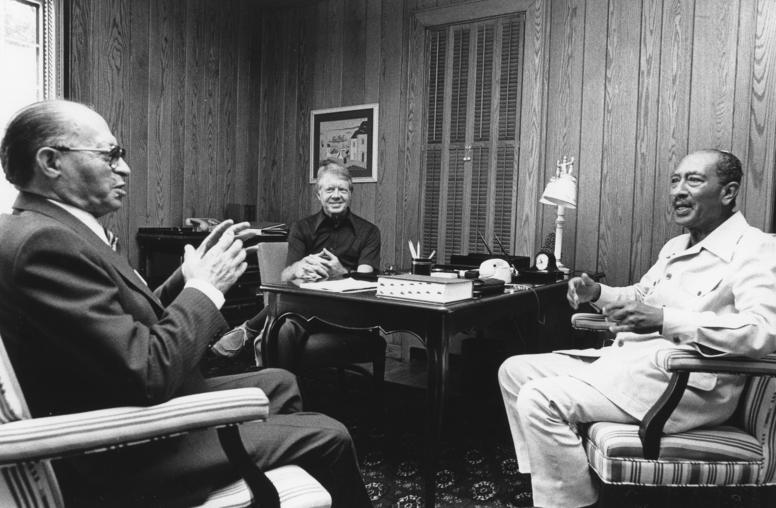Egypt: National Dialogue Vs. Street Politics
Violent street protests in Egypt recently seem to have veered out of control of either President Mohammed Morsi or his political opponents, and his overture to amend the new constitution may not help. USIP Senior Fellow Holger Albrecht examines the rapidly unfolding events.

Egyptian President Mohammed Morsi may have been trying to bridge the deep rift between Islamists and their secular opposition with his January 28 move establishing a committee to amend Egypt’s new and controversial constitution. But as a response to the street protests around the country, it may instead make him look out of touch with politics on the ground.
The announcement of the committee came with an invitation to all political forces to participate in a National Dialogue, including the National Salvation Front, led by Mohamed el-Baradei and former presidential candidates Hamdine Sabbahi and Amr Moussa. This would seem to be an opportunity to review some of the serious flaws and idiosyncrasies inherent in the constitution.
Yet, the timing of Morsi’s initiative is striking: it came after several days of street protests that had turned violent in Cairo, Ismailia, Suez, and Port Said, as well as in a number of other cities. And it did not prevent the opposition from calling for more mass rallies today , under the banner “Friday of Deliverance.”
Calls for backroom negotiations among the political establishment and for national dialogue have been part of routine crisis management in Egypt since before the fall of Hosni Mubarak. Yet they fail to address recent developments in street politics.
First, protests have turned increasingly violent, in part as a reaction to the often uncompromising stance of the security forces towards the demonstrators, but also because of the impatience and lack of compromise among political groups and individual protesters. Even though a majority of participants are peaceful, demonstrations have turned into running battles with the Central Security Forces; government buildings and Muslim Brotherhood offices were torched; prisons were stormed; women and journalists have been assaulted; and hotels are looted.
While the political opposition mobilizes people to the streets, it does not have the ability to control the unfolding events, let alone represent the interests of those dominating the agenda of street protests. Street politics have become increasingly complex and fragmented. Neither are these events and many protesters’ interests necessarily related to the struggle among political forces—Morsi and his Islamist allies vs. the secular opposition.
That struggle culminated in approval of the constitution in a popular referendum on December 15 and 22. In the meantime, ordinary people hold the government accountable for the economic impasse and vent their anger in riots that do not leave much room for a balanced judgment on the difficult transition in Egypt. A “Black Bloc” has emerged to represent an anarchist agenda of sorts. Cairo sports club Al Ahly’s hard-core football fans pressured the judiciary into handing down death sentences to 21 defendants over the Port Said football disaster a year ago, and the court ruling last weekend has outraged citizens in Port Said who in turn attempted to storm the prison to free the convicted, resulting in dozens of casualties.
Morsi looks somewhat helpless at the violent turn. A strong reaction by the security forces would certainly cause an outcry among opposition leaders, who have already criticized him for authoritarian tendencies. It also would concern foreign governments, who remain generally suspicious of the Islamists in power.
But the opposition also faces a dilemma. Due to its weakness in electoral competition with Islamist counterparts, the opposition has a strong interest in keeping street politics alive to pressure the government and Morsi for concessions. Yet, street politics have escaped the control of the revolutionaries who brought down Hosni Mubarak and turned more fragmented, increasingly violent, and less political.
Holger Albrecht is an assistant professor of political science at the American University in Cairo and Jennings Randolph senior fellow at USIP (2012-2013). Read his recent report, “Egypt’s 2012 Constitution: Devil in the Details, Not in Religion.”



